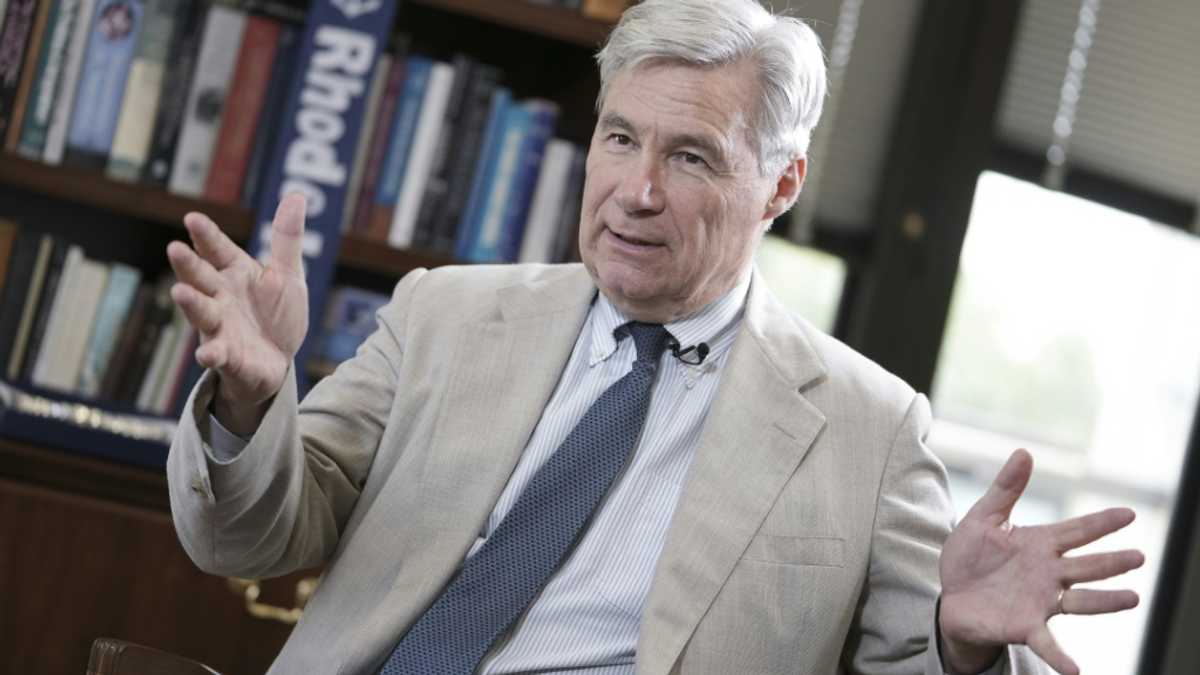A Climate Crisis and the Influence of Big Oil
In a recent interview, Democratic Senator Sheldon Whitehouse from Rhode Island described the current administration as not governing but “occupying” the nation on behalf of the fossil fuel industry. His comments came amid growing concerns over the rollback of environmental protections, which he attributes to the influence of unlimited, anonymous corporate political spending.
Whitehouse highlighted that the scale of this “fraud” is crucial to address in order to break the grip of these powerful entities. His remarks were made as the death toll from catastrophic flooding in Texas, linked to climate change, continued to rise.
“This isn’t even government any longer,” Whitehouse said, addressing a small group of reporters before delivering his 300th “Time to Wake Up” speech to Congress. He emphasized that the current administration has become an occupying force from the fossil fuel industry, infiltrating key positions of responsibility.
“They have the appearance of being government — they ride around in black cars, they have offices and titles,” he explained. However, he added, “they’re fossil fuel flunkies who care not a whit for public opinion or public safety.”
The Dark Money Takeover
The influence of the fossil fuel industry has been significant, with reports indicating that at least $445 million was spent by Big Oil to help elect Donald Trump. According to an analysis by Climate Power, this figure is likely a vast underestimate due to undisclosed donations.
In his second term, President Trump has taken several steps that have drawn criticism, including pulling the U.S. out of the Paris climate accord, gutting science agencies, firing researchers, and scrapping clean energy tax cuts. These actions have been seen as a victory for the oil, coal, and gas industry, which Whitehouse describes as their “most sordid dreams come true.”
The stage for this takeover was set by the 2010 Supreme Court ruling in Citizens United, which removed century-old campaign finance restrictions and opened the floodgates to dark money. This decision allowed corporations to spend unlimited amounts on political campaigns, significantly influencing the Republican Party.
The Way Forward
Despite the challenges, Whitehouse remains hopeful about the future of climate action. He outlines several potential game changers that could lead to meaningful progress. First, he points to the emergence of a global carbon pricing effort led by the European Union’s Carbon Border Adjustment Mechanism. This initiative taxes importers based on their climate footprint and could encourage other countries like the UK, Canada, Mexico, and Australia to join the movement.
Second, he emphasizes the need for Democrats to expose the fossil fuel industry’s stranglehold on the Republican Party. Whitehouse calls this one of the “most grave incidents of political corruption and fraud that the country has ever seen.” He advocates for passing a bill that forces donor transparency to combat this issue.
Third, he highlights that the climate crisis is no longer just a distant threat. It is directly affecting Americans’ lives, particularly their wallets. Federal Reserve Chair Jerome Powell has warned that climate change will reduce mortgage availability across the U.S. as banks and insurers avoid fire- and flood-prone areas. This could lead to a broader mortgage collapse, similar to the 2008 financial crisis.
Whitehouse believes that the fossil fuel industry’s hold on Republicans will not last forever. He predicts a dramatic reset when the full impact of their actions becomes clear. “A reckoning will come for this,” he said, emphasizing that it is only a matter of time.
He also noted that Trump himself was swept along by the dominant current of the post-2010 Republican Party, without any ideological stake in the issue. As recently as 2009, Trump co-signed a full-page advertisement in the New York Times demanding stronger climate action from then-President Barack Obama.







